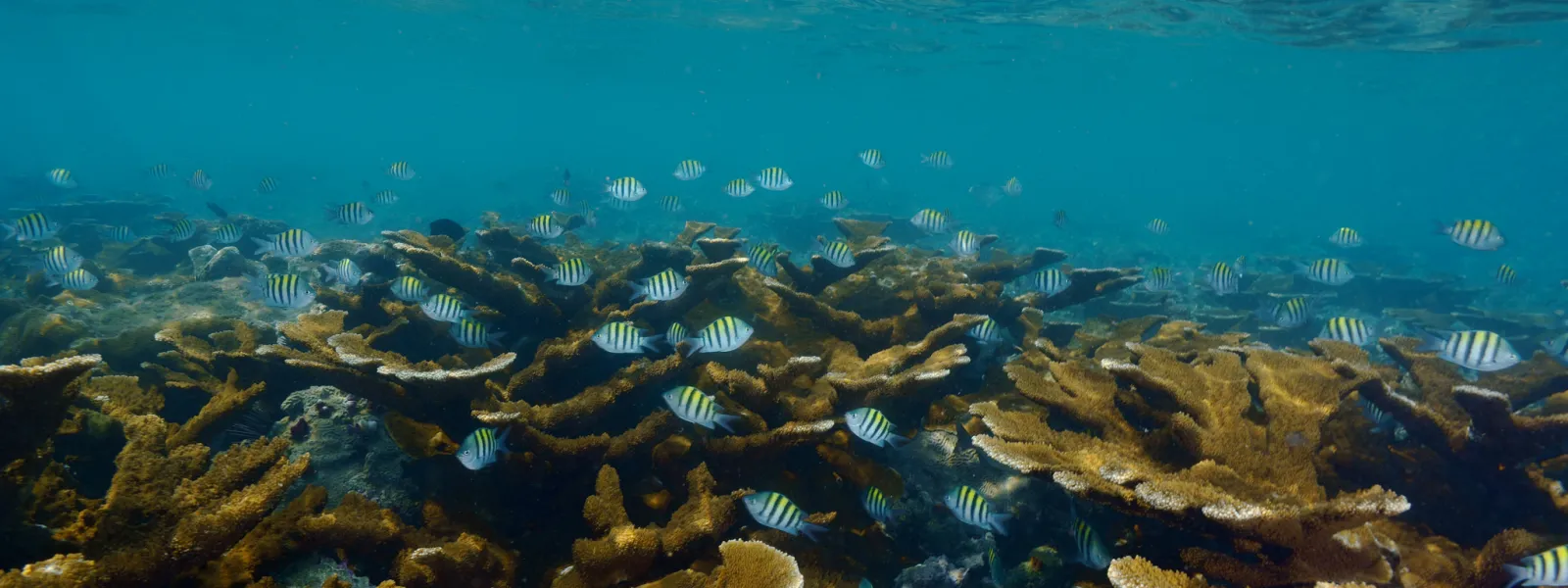
Project
Photo: Manuel VictoriaDefending the Veracruz Reef from a port expansion project
In the Gulf of Mexico, 27 coral reefs form a submarine mountain range running for miles between six islands. Hundreds of colorful fish species, sea urchins, starfish, and sea grasses share the reef with an abundance of other life forms. Fishing, sport diving, and beach tourism thrive along the coast. This is the magnificent Veracruz Reef, the largest coral ecosystem in the Gulf.
In 1992, Mexico’s government declared the Veracruz Reef System a Natural Protected Area. In 2004, it was listed as a Wetland of International Importance under the Ramsar Convention, a treaty for the protection of wetlands including reefs.
Despite the reef’s recognized significance, in 2013 the government reduced the size of the Natural Protected Area and approved a port expansion project. Local communities and organizations challenged the project's environmental permits, demanding protection of the right to a healthy environment.
On February 9, 2022, the Supreme Court of Justice of the Nation unanimously decided that the authorities violated the right to a healthy environment of Veracruz residents by authorizing the port expansion based on a fragmented environmental impact assessment. This means that the permits for the project are non-existent and that the impacts of the project on the health of the reefs must be studied again, this time in a comprehensive manner, and even the viability of the project.
The ruling is a historic precedent not only in Mexico, but for the entire region, as it allows access to environmental justice for the people neighboring an ecosystem affected by a project.
Partners:
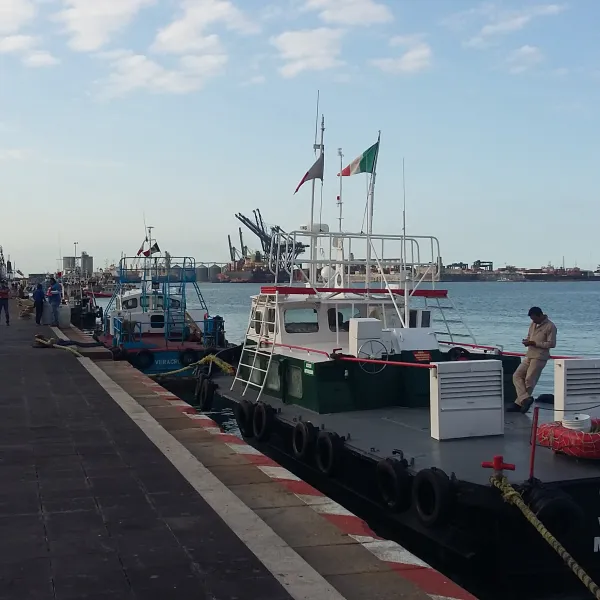
Related projects
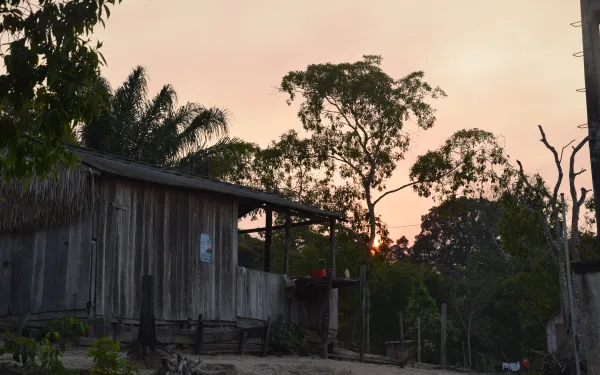
Meeting the Munduruku, sharing the lessons of Belo Monte
Beneath a thatched-roof hut along the Tapajós River, Munduruku people from communities across this region of pristine Amazon rainforest gathered for a general assembly. There were tribal elders and children, mothers and fathers, representatives from NGOs and government bodies. They came together to discuss problems, and to find solutions. They came to chart a course forward that would enable them to continue to live and grow in harmony with the natural world. October’s assembly was their first meeting since the announcement of the cancellation of the Tapajós Dam; its license was denied due to the severe environmental impacts it would cause. The rejection was a triumphant victory for the movement to protect Brazil’s Amazon, after years of disappointment and defeat caused by the nearby Belo Monte Dam. Yet, touting energy and economic gains, the Brazilian government plans to build dozens more large dams in the region. I was there because of Belo Monte: to share stories, strategies, and lessons learned from our advocacy for the people of the Xingú River who have been impacted by the dam. With me I brought a team from Climate Reality who produced a short documentary to share these stories with the world. While the fight for the people of the Xingú has been long, we remain committed to achieving justice for them. By taking their case before the Inter-American Commission on Human Rights, we intend to influence decision-making in Brazil and discourage the implementation of more large dams in the Amazon, including those planned for the Tapajós River basin. The devastation caused by Belo Monte has become a cautionary tale for neighboring tribes like the Munduruku. Because of the harm done to the people and life of the Xingú, the Munduruku understand exactly what they have to lose if the dam on the Tapajós were to happen. They would lose their homes, their sacred sites, and their connection to their ancestors. They would lose their river. Like the Xingú is to the Kayapo and Juruna people, the Tapajós is to the Munduruku. It is their highway and their supermarket; a sacred waterway, and a divine gift. They thank their gods for the bounty provided by their healthy jungle home, for the tinguejada (fish), and for all that the river gives them. It was an honor to be present to witness the strength and unity of the Munduruku people. It was humbling to join my voice with theirs. I hope that the voices of the Munduruku are heard. I hope their territory is respected, and the dam and other development projects stopped for good. And I hope the Brazilian government learns the lesson that countless indigenous people already have—large dams must stay out of the Amazon!
Read more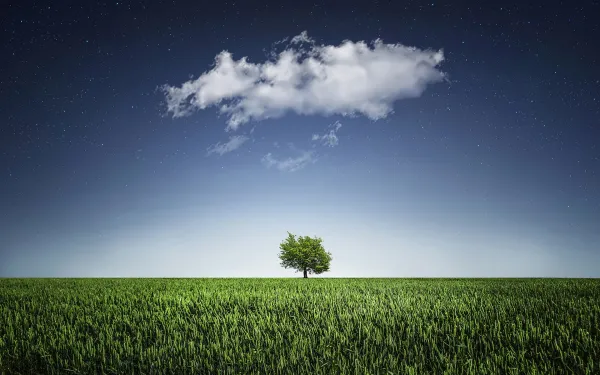
2016: 6 reasons to maintain hope for the environment
By Laura Yaniz 2016 was not an easy year. It was especially trying for the fight to protect the environment in Latin America. The loss of brave defenders broke our hearts. The international political environment became so tense after the US presidential election that we learned to take nothing for granted. The effects of climate change hit us hard, and then harder. But it has not all been grim. This year has also given us important reasons to keep the hope alive. Progress, good news and important victories lay a path to a brighter new year. Here are six pieces of good news to help you recharge and have hope for our natural world: 1. The World Bank said “No” to mining in the Santurbán páramo Just ten days before the end of the year, the International Finance Corporation, part of the World Bank Group, decided to divest from Canadian company Eco Oro Minerals. Their funding withdrawal includes the Angostura mining project, which has for years threatened the Santurbán páramo, a water source for millions of people in Colombia. It is a victory to which AIDA and our allies have contributed greatly. Now it’s the government’s turn—in accordance with national laws, they must deny all environmental permits for mining projects in Santurbán, and all other Colombian páramos. The fight for Santurbán isn’t over. Next year we’ll continue to closely monitor Eco Oro, who has filed an international arbitration suit against Colombia for measures the nation has taken to protect its páramos, among them, the high court decision to ban all mining in these sensitive ecosystems. 2. The Indigenous struggle gains strength, and wins! The struggle of the Sioux tribe against the Dakota Access pipeline became a global movement. The largest gathering of Native Americans in history inspired solidarity from artists, veterans, activists, and indigenous groups around the world. They won an important victory when the project was suspended. In Brazil, after years of perseverance, the Munduruku people of the Amazon also emerged victorious when the government denied the environmental license for a dam on the Tapajós River that would have threatened their culture and way of life. These important achievements give us hope. They highlight the need to uplift the voices and support the struggles of the world’s indigenous peoples who, according to the World Bank, protect 80 percent of our planet’s biodiversity. 3. A new climate accord is underway On November 4, the Paris Agreement on climate change entered into force. It happened years sooner than anticipated. The global political achievement was propelled by the ratification of the accord by Latin American and European nations, as well as by China and the United States (the two largest emitters of greenhouse gases). The validity of the agreement impels all nations, developed and developing, to make their commitments a reality. During the 22nd UN Climate Convention in Morocco, as a civil society observer, AIDA contributed to ensuring progress was made on securing funding to help developing countries confront the impacts of climate change. The additional news that the ozone is recovering—a fact made possible by the Montreal Protocol—gives us hope that global commitments like this one can actually bear fruit. 4. Our oceans are protected Important steps were made, nationally and internationally, to protect our world’s oceans and the many incredible creatures that call them home. Mexico created the largest expanse of natural protected areas in its history; the nation’s protected oceans are now nearly half the size of its landmass. In the United States, the expansion of a Hawaiian marine reserve made it one of the largest protected areas on Earth. In Ecuador, the Galapagos Islands reserve was also expanded to protect the sensitive marine life it shelters. Beyond national borders, the global community made important progress on protecting our common waters through the development of a new treaty to protect the high seas. AIDA has brought the voice of Latin America into that discussion. 5. Dam-free rivers In Chile, after decades of strong opposition, one company announced it was giving up on building large dams on five virgin rivers. In Peru, the new government announced that Amazon dams are not on their agenda. In Brazil, the government denied a dam that would have altered the course of the Tapajós River. In the United States, dam removal is well underway, enabling the return of native species and the restoration of ecosystems. Additionally, a recent scientific study confirmed that dam reservoirs are a major source of greenhouse gases, worsening climate change. The findings strengthen arguments we’ve been making for years—large dams are not a solution to climate change; they are part of the problem. 6. Your support Our work this year on behalf of Latin America’s environment would not have been possible without your support. When you write to us, donate photographs, join our team of volunteers and interns, or make a donation, you encourage us to keep fighting. These are messages of hope that remind us how important it is to keeping working for a better future for our children, for yours, and for those of the communities we support. We know that you don’t just follow our work, but bring it home and do all you can, in your daily life, to care for the planet, our collective home. Thank you for giving us hope! Happy 2017!
Read more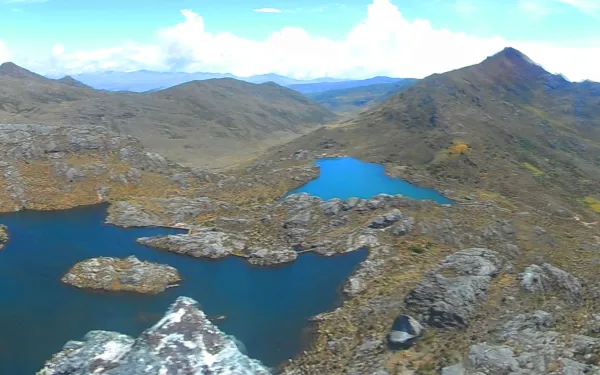
World Bank divests from Eco Oro Minerals and mining project in Colombian Páramo
In an important step for the protection of Colombia’s páramos, the International Finance Corporation (IFC) – the private lending arm of the World Bank – has decided to divest from Canadian mining company Eco Oro Minerals. The company’s Angostura gold mining project is located in the Santurbán Páramo, a protected ecosystem that provides water to millions of people. Bogota, Washington, Ottawa, Amsterdam. The International Finance Corporation (IFC), private lending arm of the World Bank Group, has decided to divest from Canadian company Eco Oro Minerals. The company’s Angostura mine is located in Colombia’s Santurbán Páramo, a protected high-altitude ecosystem that provides water to millions of people. Colombian law prohibits mining in páramos. "We applaud the Bank’s decision to side with the Committee for the Defense of Water and the Santurbán Páramo regarding the inviability of mining in the páramo," said Alix Mancilla, representative of the Committee. "We now call on the Colombian government to abstain from issuing environmental permits to any mining project which may affect Santurbán." "The IFC’s divestment is a serious political and financial blow to mining in the Santurbán páramo," said Carlos Lozano Acosta of the Interamerican Association for Environmental Defense (AIDA). "The Colombian government must now reflect on its lenient approach to large scale mining in páramos, which is illegal under national law." The IFC’s decision comes after a report issued by the Office of the Compliance Advisor Ombudsman (CAO), an independent accountability mechanism, which found that the IFC's investment did not adequately consider the environmental and social impacts of the project, breaching the financial institution's internal policies. The report was developed in response to a complaint the Committee filed before the CAO in 2012, with support from the international organizations included herein. "After intense public pressure, the IFC finally got the message and, by divesting, amplifies it further. The decision to divest strengthens the Colombian State’s ability to protect water and regulate in the public interest. We applaud this decision by the IFC, which will have an impact on Colombians everywhere," affirmed Carla Garcia Zendejas of the Center for International Environmental Law (CIEL). The IFC's decision occurs in the context of Eco Oro’s announcement that it has initiated international arbitration against Colombia, under the terms of the Canada-Colombia Free Trade Agreement at the International Centre for Settlement of Investment Disputes (ICSID), part of the World Bank. The company is filing the suit over the State’s measures to protect Colombia’s páramos. "Eco Oro Minerals' interest in Colombia is no longer about mining. Rather, it is about extorting a sovereign government for millions in taxpayer dollars and exerting pressure to weaken protections for water in Colombia. The IFC’s divestment not only extricates the Bank from a clear conflict of interest, but also highlights the presence of ill-advised mining projects in the Colombian páramo and the illegitimacy of the suit," added Garcia Zendejas of CIEL.
Read more